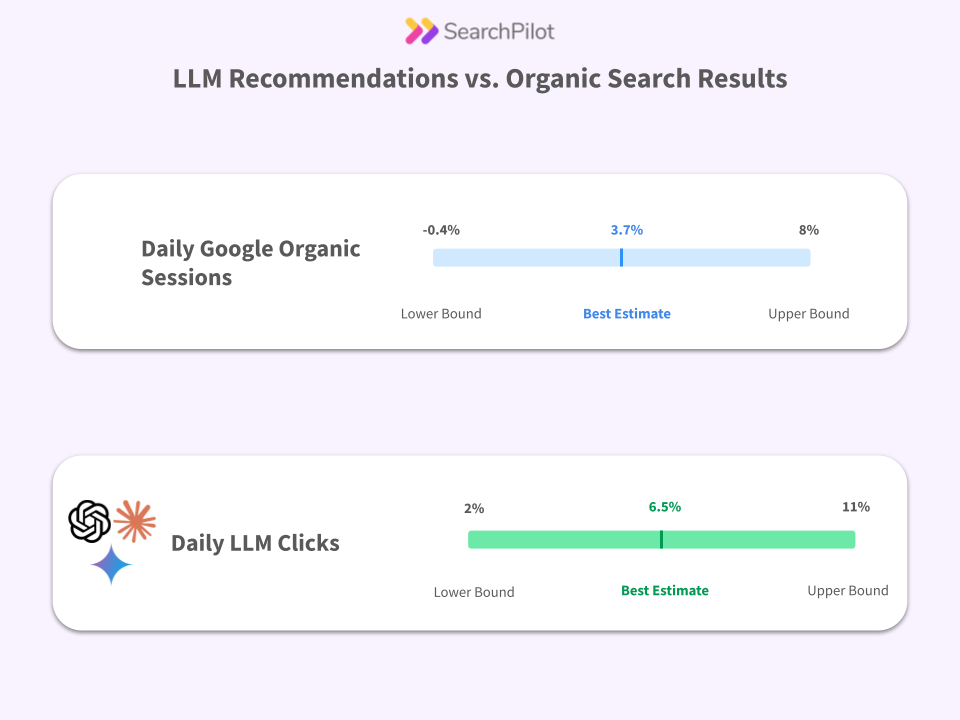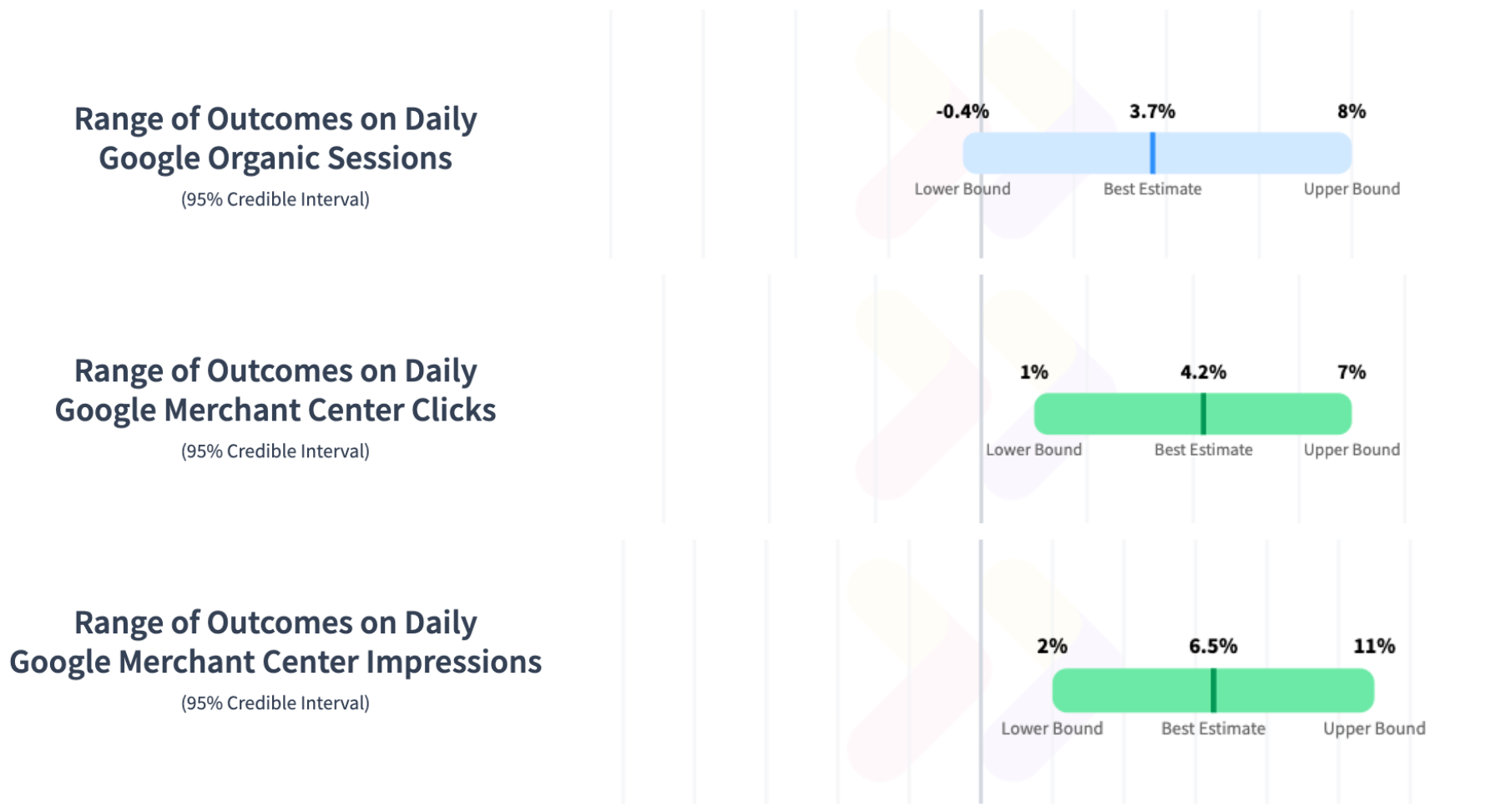At SearchPilot, we’re self-professed SEO geeks. We know that it can transform your website into your biggest revenue generator. And that’s why we do what we do.
But over the years, we’ve learned that not every organization feels the same way about SEO testing. In fact, many don’t do any at all.
So, before we assume that everyone we speak to is as passionate about the subject as we are, we like to assess their organization’s approach. In this article, we’ll introduce you to the SEO Testing Maturity Curve.
What is the SEO Testing Maturity Curve?
Heather Physioc's SEO maturity curve inspired me. It explores how sophisticated an organization’s search capabilities and practices are. This includes search capabilities like mobility, technical SEO, and content, and search practices such as policies, resources, and planning. We recommend reading the full article if you want to assess your search maturity.
We have taken the same approach and applied it to SEO testing. So, our scale or ‘curve’ will measure how much (or little) SEO testing your organization does, how advanced that testing is, and how well-integrated it is with the business's culture and operations. We’ve found that while most organizations are ‘doing’ SEO, far fewer are testing it. So, our scale ranges from those businesses conducting no SEO testing at all to those with a company-wide culture of SEO testing.
How to assess your SEO testing maturity (in five stages)
Let’s explore each of the five stages we’ve developed and what they look like in action.
Stage 1: You’re a best practice perfectionist
You follow SEO best practices. This a great start! But it means that you’re treating SEO too much like a box-ticking exercise. But, without measuring its impact, you have no way of knowing if it’s worked. Or worse, if the changes you’ve implemented have been detrimental to your website’s performance. Surprisingly, best practices don’t always guarantee the best SEO results.
To level up your SEO testing maturity, you need to be more curious and ask yourself: is ‘best practice’ actually working for us?
Stage 2: You’ve got analytical aspirations
Like a best practice perfectionist, you follow SEO rules and recommendations. But you’ve started to ask questions and search for answers on an ad-hoc basis. You use analytics data and before and after analyses in an attempt to see if the changes you’ve been implementing have made a difference.
You may not have clear targets or goals at this stage either. But you want to know more. This is where you’ll need to get a little more scientific.
Stage 3: You’re developing calculated campaigns
Here, you have started conducting rigorous tests for initiatives that are important to you. You are able to run at least some controlled SEO tests. So, when you make important changes to your website, you can see if it has made a difference. Senior leadership recognizes the importance of SEO, so they’ve established some goals.
You are reporting on your SEO test outcomes and interrogating the data at some level. However, leadership has yet to realize the full benefits of SEO testing, so they haven’t set any specific SEO testing goals.
Stage 4: You’re building an experimentation structure
SEO testing is an integral part of your business. You make hypotheses, and benchmark and measure success.
You may have junior or mid-weight team members with experimentation-specific job titles, such as SEO testing analyst or experimentation coordinator.
You’ve developed an experimentation program with defined program goals, like testing cadence and win rate.
Senior leadership requires you to report on the impact and success of the testing program.
However, you are looking at data in isolation, and you have no way of knowing how a positive change to one metric might influence another. Integrating data is the crucial next step to leveling up your SEO testing maturity.
Stage 5: You’ve achieved experimental excellence
Experimentation is baked into your culture. Senior leadership sees the true value of SEO experimentation, and an experimentation council extends across channels.
You have a formalized experimentation plan that includes SEO testing best practices. And there may be senior-level experimentation roles in place, such as an experimentation director.
You take a holistic approach to SEO testing and reporting, looking at how metrics like conversion rate and organic trafficcan influence each other and that there will often be trade-offs. For example, you are able to see when a change that boosts your conversion rate has a detrimental effect on your organic traffic and vice versa.
Congratulations! At this stage, you’re sitting proudly at the top of the SEO testing maturity curve. But if testing has taught us anything, it’s that there’s always an opportunity to do things better. You may want to run more tests faster and at scale. And you may need to assess whether you have the tools, capacity, and capabilities to achieve that.
Why move up the SEO Testing Maturity Curve?
Maturing your SEO testing capabilities has several benefits. At the bottom of the curve, moving up provides you with clarity and confidence that what you’re doing is working. It can help you prove the value of SEO and show leadership the impact that it has on the overall business.
The further up the curve you move, the more benefits you have the potential to see. As you reach the experimentation structure and experimental excellence stages of the curve, you really start to reap the rewards.
Prioritize moving up the SEO testing maturity curve to:
- Test more ideas faster
- Keep up with high-flying competitors
- Only roll out winning changes
- Align SEO goals with your company’s broader mission
From ambition to maturity
When you are passionate about what you do, it’s easy to assume that everyone else feels the same way. You’re sure they’re familiar with the acronyms, nuances, jargon and industry news that you’re referencing. And that the look in their eyes is excitement, not confusion, boredom or apathy. But it’s important to remember that may be far from the truth. Whether you’re discussing SEO test results, football scores, or the latest Taylor Swift album, you need understand how your audience feels about the subject.
Whether you’re a best practice perfectionist or you’ve achieved experimental excellence, a conversation with a SearchPilot expert is always a good idea. Our software has helped transform some of the world’s biggest websites into successful business growth drivers — all through the power of SEO A/B testing. Want to learn more? Take SearchPilot for a test flight.



